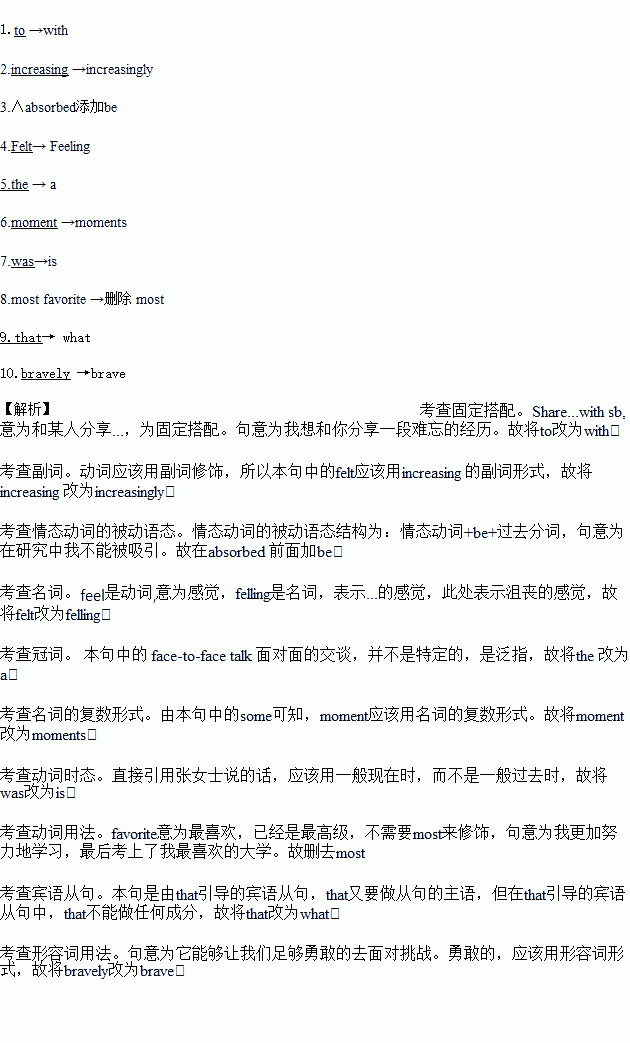题目内容
假定英语课上老师要求同桌之间交换修改作文,请你修改你同桌写的以下作文。文中共有10处语言错误,每句中最多有两处。每处错误仅涉及一个单词的增加、删除或修改。
增加:在缺词处加一个漏字符号(∧),并在其下面写出该加的词。
删除:把多余的词用斜线(\)划掉。
修改:在错的词下画一横线,并在该词下面写出修改后的词。
注意:1. 每处错误及其修改均仅限一词;
2. 只允许修改10处,多者(从第11处起)不计分。
I’d like to share an unforgettable experience to you. With the College Entrance Examination drawing near, I felt increasing anxious. As a result, I couldn’t absorbed in study. Felt discouraged, I nearly lost heart. Then Miss Zhang had the face-to-face talk with me. She said, “In our life we all have some moment when we can’t achieve what we want. It was natural. You should turn them into motivation.” Her words were a great encouragement to me. After that, I worked even harder and was admitted to my most favorite university at last.
Optimistic attitude is that really matters. It can make us bravely enough to face challenges.
 开心蛙状元测试卷系列答案
开心蛙状元测试卷系列答案

 to move out or break away from her family
to move out or break away from her family is isn’t like any old hospital, however. Today Carpenter isn’t in bed but sitting in a chair, dressed in her own clothes, a fat Dan Brown book in front of her. “You don’t feel like you’re in hospital,” she says.
is isn’t like any old hospital, however. Today Carpenter isn’t in bed but sitting in a chair, dressed in her own clothes, a fat Dan Brown book in front of her. “You don’t feel like you’re in hospital,” she says.